- Home
- Thomas H. Cook
Into the Web Page 9
Into the Web Read online
Page 9
“No, Mama.” Lila took her mother’s arm. “This is Roy. Roy Slater. Not Jesse.”
The old woman drew away from me instantly.
“He’s just come up to visit.” Lila tugged her mother back toward the door. “Isn’t that nice?”
The old woman’s hand fell limply to her side. Something in her eyes grew dark and accusatory. “You ain’t the man your daddy was.”
“Mama!” Lila blurted out. “You be quiet now.”
The old woman’s voice hardened. “Jesse wouldn’t have took it.”
“Mama, stop it,” Lila said sharply.
But Mrs. Cutler didn’t stop. “Jesse would have done something about it.”
“Let’s go back in the house, Mama,” Lila pleaded.
Mrs. Cutler’s eyes remained level upon mine. “Even after what they done to him at the Waylord mine.”
I stared at her helplessly. “The Waylord mine?”
“Come on now, Mama,” Lila snapped, firmly turning the old woman away from me, whispering, “Sorry, Roy, sorry,” as she ushered her toward the door.
I waited in the yard, all but reeling from so disturbing a remark, the sound of it echoing through my brain. Through the window I could see Lila guide her mother hastily toward a wooden rocker, scolding her gently all the way.
In response, the old woman muttered something I couldn’t understand.
“Mama just says things, Roy,” Lila told me when she returned to me.
“What was she talking about?” I pressed.
“I don’t know,” Lila said. “She gets things confused. One memory floats into another one. Things whirl around.”
She knew that I’d seen it, the lie in her eyes. “I better get back inside,” she said quietly. “Good-bye, Roy.”
She backed away from me, her smile soft, almost fragrant, like a small pale flower on her lips. “I always knew you’d be a good man,” she said in words she clearly considered to be the last she would ever say to me. “Nothing could change that … nothing.”
Chapter Eleven
On the way back to the valley, I spotted the road that had once led to the Waylord mine and the coal-blackened company town that surrounded it. A wooden sign had been nailed to a tree at the entrance to the road, reminding everyone that although the mine itself had long been shut down, both the mine and the town remained the private property of the Waylord Mining Company.
For all the times I’d swept up the road toward Lila’s house, I’d never once turned off it, but Betty Cutler’s words suddenly cut through me, Even after what they done to him at the Waylord mine, and fired a need in me to discover what had shaped my father, perhaps twisted him, but had, by some transforming means, made him the man she seemed to think I was but the shadow of.
The road into the town was overgrown now, little more than parallel ruts through a snarl of weed, but still maneuverable. Peering down its twisted path, I wondered what it was in my father that Mrs. Cutler so admired, and what had buried it so deeply, I’d never had the slightest glimpse of it for all the years I’d lived within my father’s house.
I reached Waylord a few minutes later, got out of my car. A crescent-shaped line of buildings curved around a broad street. The mine lay at the eastern tip of the crescent, a square maw dug out of the hillside. It had been abandoned long ago, of course, along with the company offices and stores.
Just behind the unpainted wooden gate that now blocked the mouth of the mine, I could see the supporting timbers, thick and black, along with the steel roof bolts that held them in place. It was not hard for me to imagine the years during which the mine had been active, the clang of the bell calling the miners to and from the mine, the shuffle of their feet as they passed each other in long lines, clothed in denim coveralls, their heads decked out in plastic helmets and carbide lights.
My father had worked in the Waylord mine from the day he was nine years old, scrambling into the rickety wooden elevator, no doubt peering upward, as miners often do on the descent, drinking in a last greedy gulp of sun before the night engulfed them.
The august offices of the Waylord Mining Company sat on a slight incline, shoved up against the hillside, its wide deck lifted on high wooden stilts. From there, the owners had been able to survey their pinched domain, their mine, their stores, the gray masses who toiled beneath them. I could imagine my father glancing toward them as he filed past, swinging his metal lunch bucket and muttering curses or making jokes at the expense of the rich men who loomed above him, smoking cigars, their thumbs hitched in their suspenders.
“Can I help you with something, mister?”
He wore no uniform, but an unbridled and menacing authority dripped from every pore. Even without the shotgun that hung in the crook of his arm, he would have given off the smoldering sense of what he was. Here standing before me was the mythical gun-thug of my father’s grim boyhood, unsmiling, wielding a lawless power to hurt and kill, able to strike terror in all but the strongest hearts.
“This is private property, you know. Posted.”
I felt a pinch of fear. “Yes, I know.”
“So you saw that sign, did you? Out by the road?”
“I saw it.”
He took a step toward me. “Well, in that case, you better be on your way. Like I say. This here land is posted.”
I’d already begun to ease back to my car, when another man appeared on the steps of what had once been the company store.
“What’s going on, Floyd?” he called.
The gun-thug’s shoulders lifted abruptly, like a dog’s ears at his master’s call. “Oh, it ain’t nothing, Mr. Hopper,” he yelled back to the old man at the top of the stairs.
“Don’t tell me it ain’t nothing,” the old man snarled. “Who’s that feller?” He pointed to me.
The gun-thug looked at me quizzically. “What’s your name, mister?” he asked, his tone now suddenly polite, his face hanging slightly, like a scolded puppy.
“Roy Slater,” I told him.
“Says his name’s Roy Slater,” he shouted to the old man.
“Slater?” the old man said in a tone that suggested to me that he recognized the name. “Bring him here, Floyd,” he commanded.
A knot formed in my stomach. “Look, I was just …”
The gun-thug motioned me toward the old man. “Them stairs …” he began.
“Look, I didn’t mean to …”
The gun-thug peered at me quizzically. “You sick or something?”
“No.”
He took this for the truth, turned, and headed for the stairs, motioning me along. “Them stairs,” he repeated. “You got to watch how you take ’em. Some’s about to give in. Just foller me and you won’t fall through.”
I followed him up the stairs, carefully avoiding the ones he avoided until we reached the spot where the old man waited, his frame bent like a piece of tin someone had hammered into a misbegotten shape.
“You looking for something here in Waylord?” he asked.
“No, I just wanted to see where my father worked, that’s all,” I answered. “The Waylord mine, I mean. The hoot-owl shift. That’s the one he worked.”
The old man grinned. “So he was a night miner.” He studied my features. “You say your name’s Slater?”
“My father’s name is Jesse. Jesse Slater. Did you know him?”
The old man’s eyes shot over to the gun-thug. “Floyd. Go on back down to the gate.”
The gun-thug nodded slowly, then thudded down the stairs, his great hulk weaving like a wounded bear.
“That boy can’t think two steps ahead of hisself,” the old man muttered, then turned to me. “You don’t look like you’re from here. Don’t talk like it either.”
“I live in California now.”
The old man cast his eyes about the dead town almost nostalgically, and the threatening nature of our previous exchange suddenly faded, leaving a soft light in his face. “They ain’t nothing left of this place. Used to be lively, tho
ugh. Name’s Hopper. Asa Hopper.” He offered his hand.
I shook it. “Glad to meet you.”
“Like I said, don’t get many visitors up this way.”
I looked at him silently for a moment, trying to figure out how to begin, then decided simply to state it flat out. “The truth is, I’m trying to find out something. Just something an old woman said to me once.”
“Uh-huh.”
“That I’m not the man my father was. I think she said it because my father did something. She mentioned the mine. I got the idea that it must have happened here. Whatever he did.”
A silence fell between us, and I could see Hopper’s mind turning slowly, dredging the bottom of his long memory. “There ain’t nothing to be done about it now, son,” he said finally, his tone quiet, measured. “Most of them fellers is long dead. The ones that done it.”
I suddenly understood the purpose Hopper thought I must have had in returning to Waylord, the mission he assumed I’d set myself, dear to the heart of all who lived in the hills: vengeance.
“I wasn’t planning to do anything to anybody,” I assured him. “I just came here to—”
“It was all the talk around here, you know,” Hopper said. A grim wonder swam into his eyes. “Nobody figured he’d live, your daddy, but this young feller, a doctor, come up from Kingdom City and tended to him after the beating.”
“Why was he beaten?” I asked.
“ ’Cause he acted smart,” Hopper answered. “Smarted off to ’em. He was just a kid, and all. Sixteen, maybe. Just a kid. So they figured he’d cave in the minute he got spoke to.” He nodded. “Right in there. Right by that little candy counter. That’s where he smarted off, and that’s when they done it.
“Everybody figured it was planned out ahead of time,” Hopper went on. “ ’Cause them fellers was all standing in different places in the store. When your daddy come in, I mean. Sort of like they was already in position. Waiting for him. The sheriff and them guys that worked for him.”
“The sheriff?” I asked. “It was Wallace Porterfield who beat my father up?”
“Him and two more that worked for him,” Hopper answered. “Deputies.”
I gazed through the dusty glass, surveying the room as Hopper continued, placing the sheriff and his men in the places he indicated. One of them at the front door, a second at the rear, Wallace Porterfield halfway between the two, the massive fulcrum upon whose orders each moved, and finally the store’s owner far off to the side, watching it all from behind a stack of cardboard boxes.
“Mr. Warren run the company store back then,” the old man said. “Managed the whole thing.” He cleared his throat roughly, coughed into his fist. “People said it was Sheriff Porterfield that started it all. Come up to your daddy, sort of put his hand on his shoulder. Said, ‘Come with me, boy.’ Or something like that.”
I saw my father turn to face the enormous granite boulder of Wallace Porterfield, heard him speak the words local legend placed in his mouth.
Where to?
You’ll know when you get there.
I ain’t going nowhere.
Oh yes you are.
You don’t have no right to …
I got all the right I need.
“Then Porterfield reached into one of them jars over there,” Hopper said. “Took out a piece of penny candy and stuck it right in your daddy’s shirt pocket. Looked him right in the eye and said …”
You’re under arrest, son.
For what?
Stealing candy.
Hopper shook his head. “That’s when your daddy smarted off.”
You’re a liar.
“And he didn’t stop with that, your daddy.” Hopper’s face was fixed in amazement. “He didn’t stop. The people in the store heard it all.”
And a thief.
“I guess that’s when Porterfield noticed how everybody had stopped what they was doing, how they was watching all this. That’s when he grabbed your daddy by the arm, but your daddy pulled his arm right out of the sheriff’s grip and said some more.”
And you’re a coward.
In my mind I saw Porterfield’s stony glare, the subtle nod he made, then the other two men as they closed in on my father.
“Mr. Warren started rushing everybody out of the store, telling them that he was closing up for a few minutes.”
By then they’d surrounded my father, Hopper told me, three gigantic men, peering down at a small bantam rooster of a boy.
“Once Mr. Warren had gotten everybody out of the store, Porterfield and the others took your daddy to a back room,” Hopper said.
It came to me in a nightmarish vision, my father dragged into a back room, tormented with jokes and jibes, his slight, wiry frame shoved up against a wall, faces pressed near his, screaming taunts, then the eerie silence before the violence began. I could scarcely imagine how terrified he must have been, how fully his terror must have sucked the life-force out of him, reduced him to a pile of spit and blood faster than he could possibly have dreamed it before the beating began, his swollen eyes barely able to make out the polished shoes of the men who towered over him when it was over, laughing as they poked the tips of their boots at his ribs, trying to rouse him just enough to have another go, puffing blue smoke into the fetid air, finally giving up, filing out.
“They all come out a few minutes later. People seen one of the deputies flicking his hand, like it was numb. Porterfield had pulled his jacket off, rolled up his sleeves. He was dabbing at a stain on his shirt with a handkerchief. They heard something too, the people outside. Heard Porterfield look back into the store, to where Mr. Warren was still settin’ at the counter. Heard him say something like ‘Don’t worry, Henry, that boy’s lovin’ days are over.” He shrugged. “People never was clear on why they done it to him,” Hopper told me. “I mean, he didn’t steal nothing. Wasn’t bothering nobody in the store.”
Wallace Porterfield’s voice sounded like a heavy bell in my mind: Don’t worry, Henry, that boy’s loving days are over. “Deidre,” I said almost to myself. “It was over Henry Warren’s daughter.”
Hopper shook his head. “Well, if that’s so, he sure must have cared a whole lot about that girl to take a beating like that.”
“Yes, he did,” I said softly, imagining how broken my father must have been, groaning on the floor as Wallace Porterfield stood over him, and yet able, too, to imagine him rising from that same assault, determined and unbowed, something at the fleshy core of him turning into steel. “But I’m still surprised it stopped him from seeing her.”
Hopper scratched at his jaw. “Well, he didn’t have no chance to see her. ’Cause Mr. Warren shipped her off not long after that. Out of Kingdom County. To one of them schools they got up north. You know, where kids live at school.” He shrugged. “Anyway, she never come back to Waylord. Nor Kingdom County neither, far as I know. Nobody never seen her around here again.”
I saw her, a teenage girl hustled into the back of a car, her father at the wheel, starting the engine, pulling away, Deidre glancing back toward a town she’d never see again, hills in the distance where a boy lay half dead in a mountain hovel, battered, nearly broken, a boy whose loving days, at her departure, were surely and forever over.
So that was it, I thought as I walked down the stairs to my car a few minutes later. I’d solved the mystery of my father’s unhappiness, found the lost love for which he’d pined through all the years. He’d loved Deidre Warren and for her sake had taken a beating that I knew in the end would not have stopped him, something Henry Warren must have known as well, something Wallace Porterfield, for all his confidence in violent intimidation, must ultimately have told him. There’s no stopping that boy, so that they’d finally spirited Deidre Warren away, taken her to where my father, for all the determination of his will, would never be able to reach her.
For a very brief moment, I reveled in the solution to my father’s mystery, pleased, more or less intellectually, to have uncovered it
. Then, like an intruder in the night, something dark encroached upon my reverie, the terrible truth that that long-ago beating had not only marked my father, wounded and distorted him, but that ultimately it had done the same to our relationship. For how cowardly and pathetic he must have viewed my response to Porterfield’s son many years later, the way I’d done nothing in the face of the insult he’d shouted at Lila on the mountain road. And for all its horror and devastation, how strangely heroic my father have must have seen Archie’s doomed attempt to run away with Gloria Kellogg.
So now I knew why, even in my adulthood, I had never seemed a man to my father. It was not my education or my job that condemned me. It was the fact that at the critical moment I had not fought for love, but had merely turned away, let Lonnie Porterfield’s insult stand, even made up a limp excuse for his cruelty, He was young, Dad. He was drunk, then done nothing to avenge what he had said to Lila, the rape his words must have seemed to her, and by that miserable weakness and failure marked myself forever as worthless.
That you can never gain your father’s admiration, nor even his respect, is the darkest thing a son may know, and as I headed down the mountain that afternoon, I knew it to the full. I might escape the iron grip of Waylord, become in all worlds renowned, but Pitiful, Roy, pitiful was an indictment I would never be able to escape.
PART II
Chapter Twelve
Life deals the cards facedown.
That was a phrase that often returned to me during the next weeks of that summer.
It was my freshman English teacher who’d said it in class one day. What do all writers eventually tell us, he’d asked, then stared out over his students, a field of blank faces. Simply this, he said, answering his own question: life deals the cards facedown.
So much so, as I later learned, that even as the cards are turned, some part remains hidden, like the half-smile on the jack of hearts.
For nearly six weeks after leaving the Waylord mine that afternoon I occupied myself almost exclusively in the daily physical tasks of caring for my father-cleaning, washing, chores that used up time and kept me out of his sight. I cooked what he called his “three squares,” and took them to his room, where he ate alone, if he ate, the plate in his lap, the television blaring. As often as possible I took my own meals outside the house, usually at the Crispy Cone in Kingdom City. When at home I sequestered myself in my room, the door closed, books scattered about, providing another world into which I immediately retreated at the sound of my father’s tread outside my door.

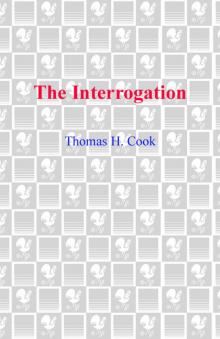 The Interrogation
The Interrogation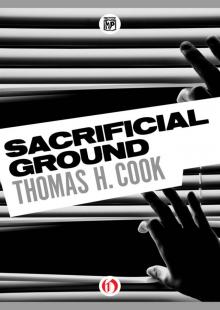 Sacrificial Ground
Sacrificial Ground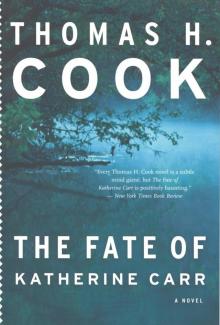 The Fate of Katherine Carr
The Fate of Katherine Carr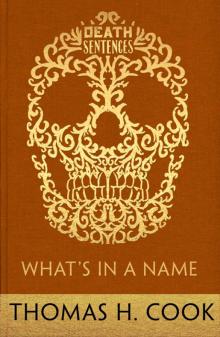 What's In A Name
What's In A Name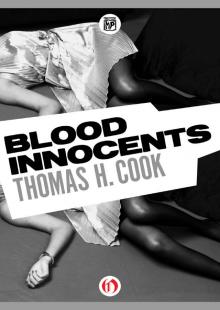 Blood Innocents
Blood Innocents Peril
Peril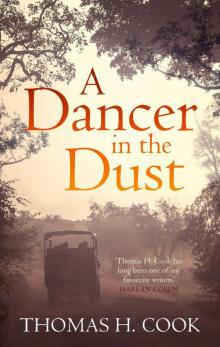 A Dancer In the Dust
A Dancer In the Dust Breakheart Hill
Breakheart Hill The Chatham School Affair
The Chatham School Affair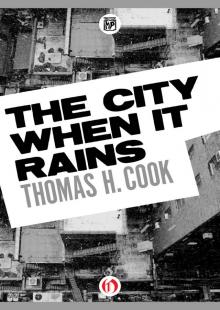 The City When It Rains
The City When It Rains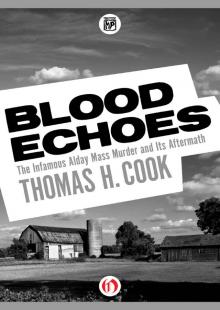 Blood Echoes
Blood Echoes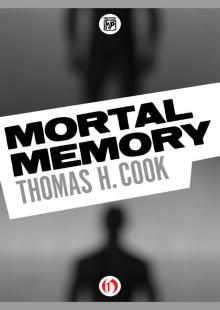 Mortal Memory
Mortal Memory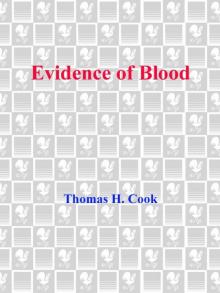 Evidence of Blood
Evidence of Blood Into the Web
Into the Web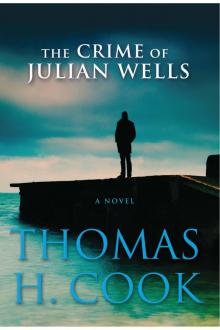 The Crime of Julian Wells
The Crime of Julian Wells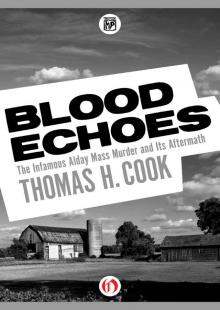 Blood Echoes: The Infamous Alday Mass Murder and Its Aftermath
Blood Echoes: The Infamous Alday Mass Murder and Its Aftermath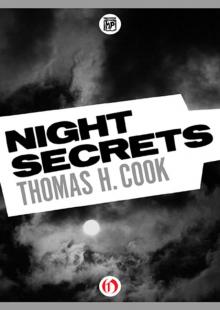 Night Secrets
Night Secrets Places in the Dark
Places in the Dark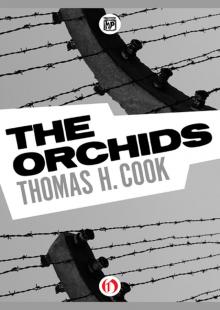 The Orchids
The Orchids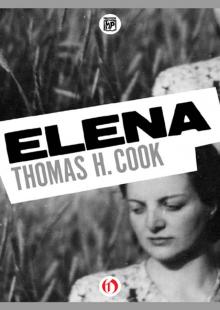 Elena
Elena Streets of Fire
Streets of Fire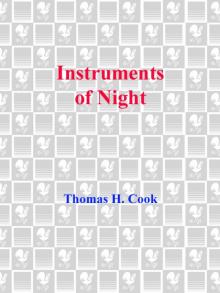 Instruments of Night
Instruments of Night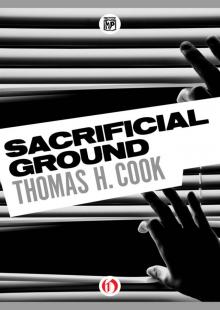 Sacrificial Ground fc-1
Sacrificial Ground fc-1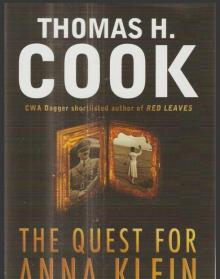 The Quest for Anna Klein
The Quest for Anna Klein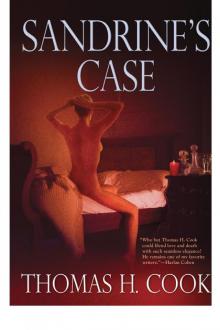 Sandrine's Case
Sandrine's Case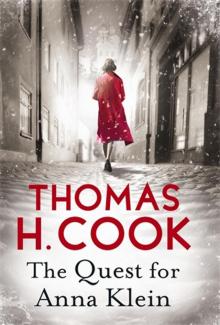 Quest for Anna Klein, The
Quest for Anna Klein, The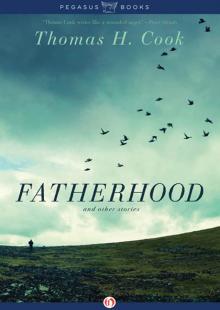 Fatherhood
Fatherhood Flesh and Blood
Flesh and Blood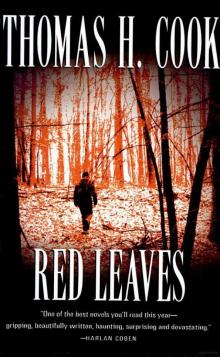 Red Leaves
Red Leaves